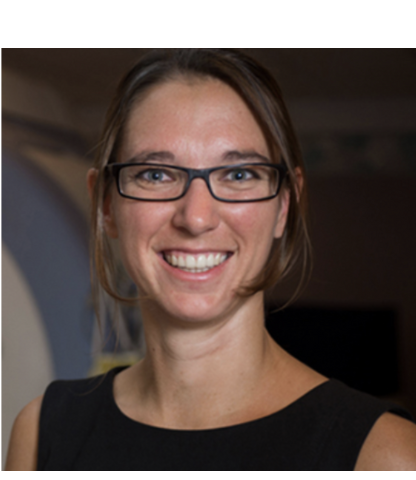What DH Means to Me: Natalie Phillips

When I first came to MSU, I didn’t even think to consider myself part of digital humanities. I was someone who studied the eighteenth-century novel and the history of mind who also happened to do cognitive approaches to literature, using tools like fMRI and behavioral methods from psychology to study our responses to fiction and the arts. Sure, we did text analysis of Jane Austen novels and presented a chapter digitally for brain scans. I was learning to read Python a little, but I couldn’t write lines of code. Was I part of DH?
As the MSU community quickly showed me, of course I was! As I learned about the “big tent” model of DH, we had the opportunity in the Department of English to create the Digital Humanities & Literary Cognition lab, or the DHLC—which I founded with Steve Rachman and now co-direct with Julian Chambliss. In the lab, I learned that DH championed the things most important to me: interdisciplinary scholarship across science and the arts, a radical inclusivity of student research and community engagement, and a dedication to team-based work that pushes back on traditional hierarchical structures of academic knowledge and creation.
Today, the DHLC lab tries to model these principles on the ground in daily interdisciplinary work. What began with an fMRI of reading Jane Austen has grown into global collaborations on the pleasure we find in poetry reading, the stories we hear in orchestral music, the creative outlets we turned to during Covid-19—and, thanks to Julian Chambliss, work on mapping black geographies all-too-easily lost to the historical archive. Students, as always, are at the center of this work. We do research; we analyze all kinds of data; we co-author articles and write grants; lately, we create accessibleart exhibitions.
What I love most about DH is how its inclusivity and emphasis on community engagement has urged me to grow, expanding my work in cognitive studies of literature and eighteenth-century history of mind into art exhibits on Creativity in the Time of Covid-19 that champion disability justice and accessibility. (Come check out our exhibits at MSU and Detroit in 2024!) This most recent turn is leading us to integrate DH, cognitive studies, disability studies, and health humanities by bringing examples of how people turned to creativity during the pandemic into hospitals. I couldn’t be more grateful to the DH community at MSU for making this kind of student-centered interdisciplinary work possible. It’s led to some of the most exciting and fulfilling experiences of my academic life.
–Natalie M. Phillips
Associate Professor, Department of English
Affiliated Faculty, Cognitive Science Program
Affiliated Faculty, Center for Interdisciplinary Research, Collaboration, Learning & Engagement
Founder and Co-Director, Digital Humanities & Literary Cognition lab (DHLC)
The following piece was originally created for the DH@MSU Newsletter and was featured in the March 18, 2024 issue. Subscribe to the Newsletter here.